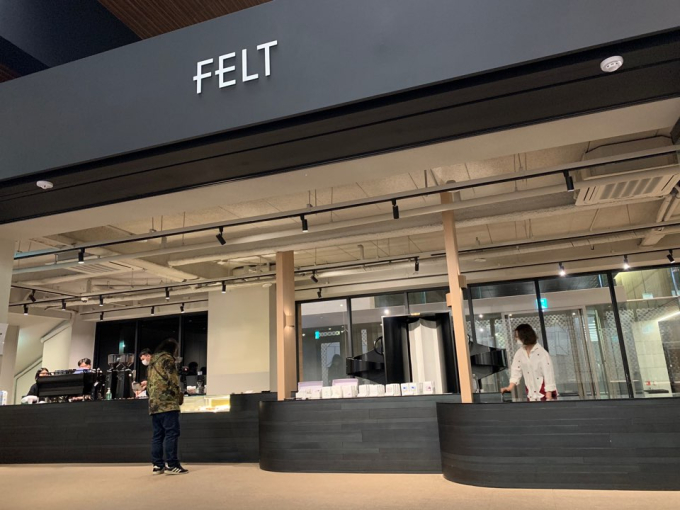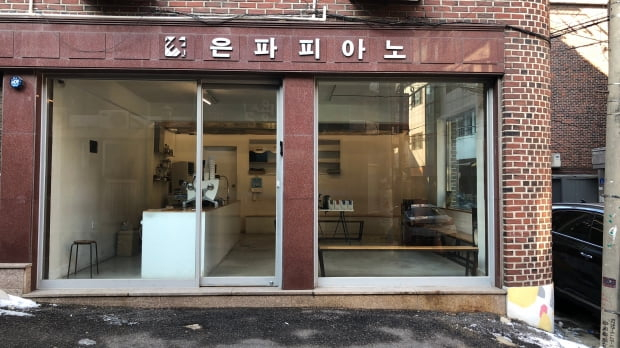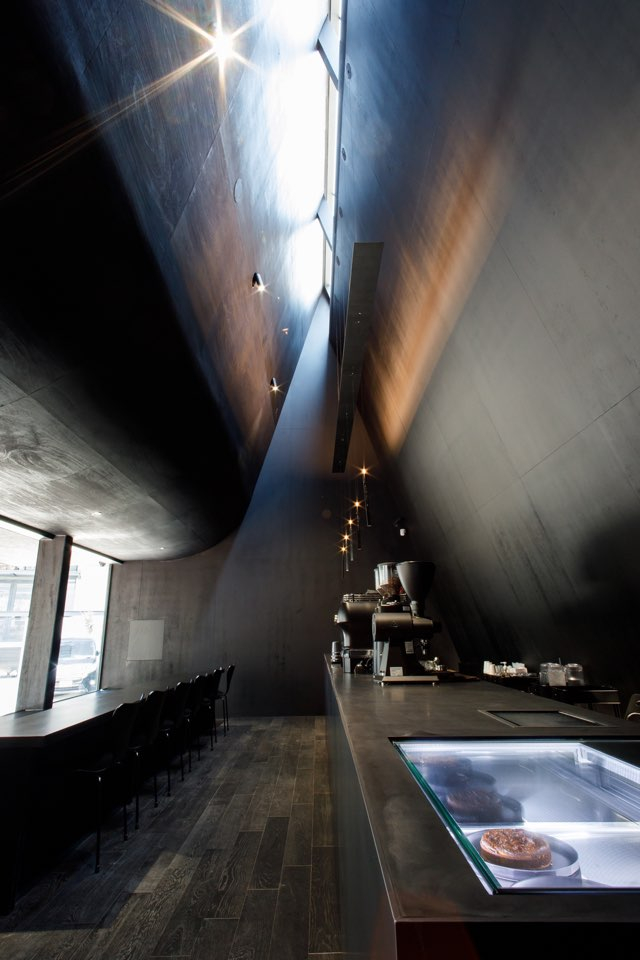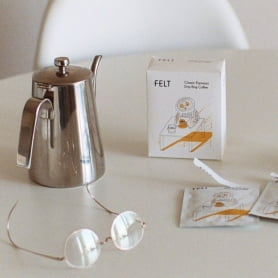Cafe-goers' bucketlist
Felt Coffee introduces minimalism to Korean coffee shops
Felt Coffee introduces minimalism to coffee shops
By Sep 30, 2020 (Gmt+09:00)
2
Min read
Most Read
LG Chem to sell water filter business to Glenwood PE for $692 million


KT&G eyes overseas M&A after rejecting activist fund's offer


Mirae Asset to be named Korea Post’s core real estate fund operator


StockX in merger talks with Naver’s online reseller Kream


Meritz backs half of ex-manager’s $210 mn hedge fund



Two years ago, a new coffee shop appeared in Gwanghwamun, one of the busiest office districts in Seoul, redirecting the daily traffic of businesspeople whose days begin with picking up a cup of coffee on their way to work. The passage that connects Gwanghwamun Station to Jongno’s landmark D Tower began to bustle with people heading to the same destination: Felt Coffee.
Felt first made its name as a coffee shop experimenting with minimalism. In 2015, its first store opened in a space formerly used for piano lessons in the residential area of Changjeon-dong, Seoul. The exterior was left as it was with name of the piano academcy left displayed, and there wasn’t much to the interior other than white walls and a white espresso machine.
The unprecedented decor raised buzz within South Korea's coffee-shop industry as coffee shops are usually hang-out spots, meaning many chairs and tables to accommodate clients. But this strange minimalistic coffee shop drew in coffee enthusiasts who craved a cup of high-quality coffee.
“We wanted it to be a space where people can just enjoy and concentrate on coffee flavors,” said Song.

At Felt, there are no chairs facing each other and tables are rare; the space is filled with the aroma of coffee and music. It feels more like a showroom rather than a coffee shop. People who visit Felt can enjoy their coffee and engage in private conversations without the interruption of loud chatter.
This unique coffee shop brand began as a specialty coffee bean roaster. Founded by former baristas Song Dae-woong and Kim Young-hyun, the duo set up a factory and brought in specialty coffee beans personally chosen from Costa Rica and Ethiopia. Felt supplies its beans to over 300 coffee shops across the country. The coffee shop roasts about six tons of beans monthly and in 2019, Felt's annual revenue climbed to the 3 billion won ($2.6 million) range.

Felt operates coffee shops in three different districts that target completely different consumers. The first Changjeon-dong store is in a residential area, the second Gwanghwamun store is in a business district, and the third Dosan Park store is on the first floor of the JUUN.J flagship store, a menswear fashion brand under Samsung C&T Corporation. The Felt signature – minimalist style – is felt in all three stores.
“We want Felt to be like a fine quality basic t-shirt, basically the type of coffee that goes well in any place or occasion,” said Song.
Felt does not open stores in districts that are loaded with coffee shops or a large floating population. Instead, Felt selects locations that are considered to be challenging. Ironically in the past few years, many new rising coffee shops have benchmarked Felt.
“Our philosophy is to design coffee centers that blend in with their existing surroundings,” said Song.

Song says that, of late, he is most occupied with creating sustainable coffee shops. His efforts have been constructive, resulting in a 5 to 10% wage increase every year for his employees, in addition to launching various products such as drip bags and capsule coffee targeting the home cafe market.
Write to Bora Kim at destinybr@hankyung.com
More to Read
-

-

-
 Travel & LeisureKorean hotels bask in rising foreign visitors; travel agencies in trouble
Travel & LeisureKorean hotels bask in rising foreign visitors; travel agencies in troubleApr 22, 2025 (Gmt+09:00)
-
 Beauty & CosmeticsPackaging rides K-beauty wave: Shares of cosmetics container makers soar
Beauty & CosmeticsPackaging rides K-beauty wave: Shares of cosmetics container makers soarApr 21, 2025 (Gmt+09:00)
-
 Food & BeverageIndia: Tantalizing frontier for K-food’s global ambitions beyond China
Food & BeverageIndia: Tantalizing frontier for K-food’s global ambitions beyond ChinaApr 18, 2025 (Gmt+09:00)
Comment 0
LOG IN


